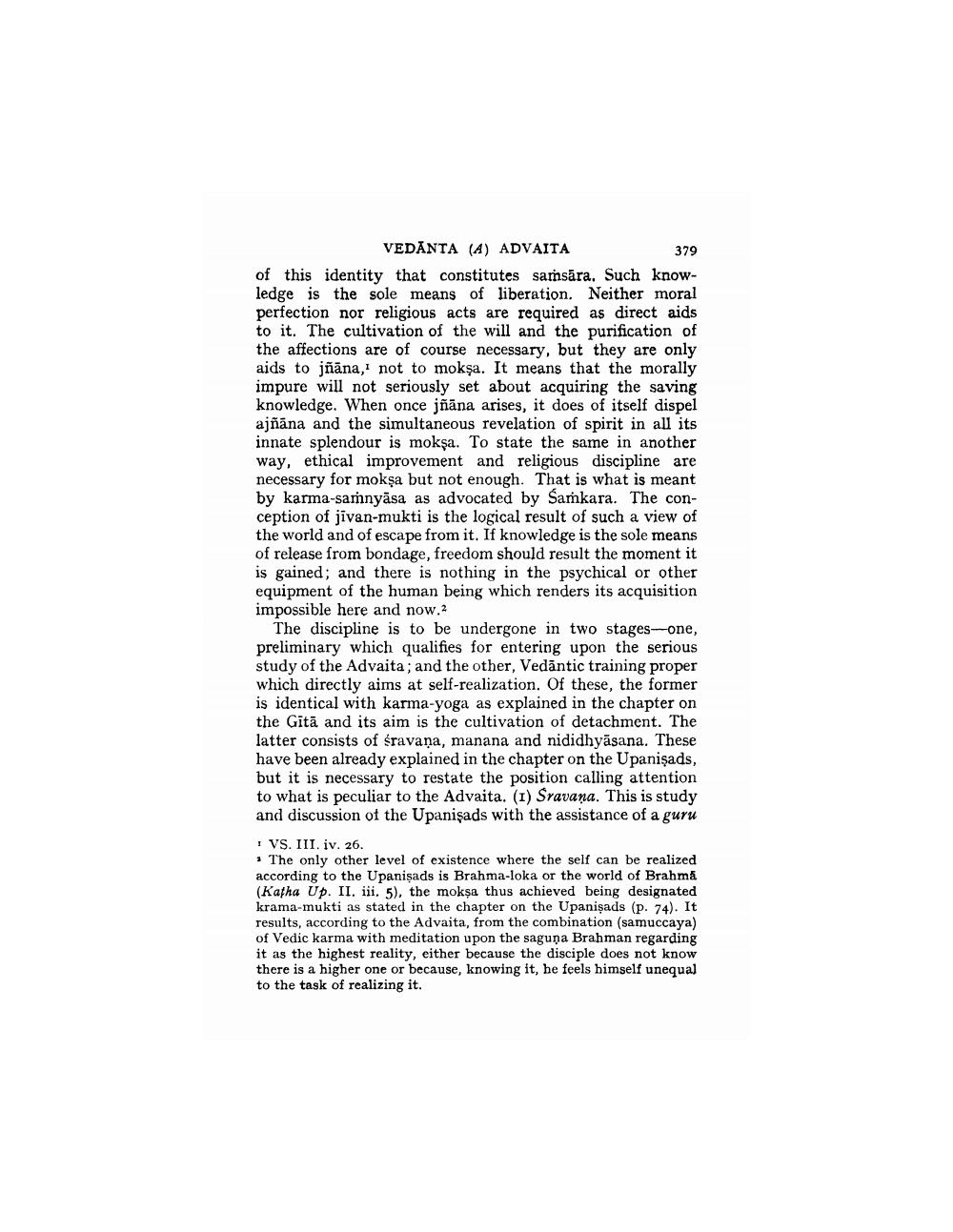________________
VEDANTA (A) ADVAITA
379 of this identity that constitutes samsāra. Such knowledge is the sole means of liberation. Neither moral perfection nor religious acts are required as direct aids to it. The cultivation of the will and the purification of the affections are of course necessary, but they are only aids to jñāna, not to mokşa. It means that the morally impure will not seriously set about acquiring the saving knowledge. When once jñāna arises, it does of itself dispel ajñāna and the simultaneous revelation of spirit in all its innate splendour is mokşa. To state the same in another way, ethical improvement and religious discipline are necessary for mokşa but not enough. That is what is meant by karma-samnyāsa as advocated by Samkara. The conception of jivan-mukti is the logical result of such a view of the world and of escape from it. If knowledge is the sole means of release from bondage, freedom should result the moment it is gained; and there is nothing in the psychical or other equipment of the human being which renders its acquisition impossible here and now.2
The discipline is to be undergone in two stages--one, preliminary which qualifies for entering upon the serious study of the Advaita; and the other, Vedāntic training proper which directly aims at self-realization. Of these, the former is identical with karma-yoga as explained in the chapter on the Gītā and its aim is the cultivation of detachment. The latter consists of travaņa, manana and nididhyasana. These have been already explained in the chapter on the Upanişads, but it is necessary to restate the position calling attention to what is peculiar to the Advaita. (I) Sravana. This is study and discussion of the Upanişads with the assistance of a guru
1 VS. III. iv. 26. · The only other level of existence where the self can be realized according to the Upanişads is Brahma-loka or the world of Brahma (Katha Up. II. iii. 5), the mokṣa thus achieved being designated krama-mukti as stated in the chapter on the Upanişads (p. 74). It results, according to the Advaita, from the combination (samuccaya) of Vedic karma with meditation upon the saguna Brahman regarding it as the highest reality, either because the disciple does not know there is a higher one or because, knowing it, he feels himself unequal to the task of realizing it.




